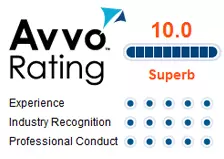DUI Field Sobriety Testing
There are many excellent resources on the web regarding the standardized field sobriety tests. You will find one such example on the web site Michigan Drunk Driving Defense. You may also wish to watch the following video:

DUI Book Photo
Also, this topic is covered in great detail in both The DUI Book as well as Defending Drinking Drivers. Here are some small excerpts from chapters two and six of The DUI Book:
2.15. Never attempt to perform the SFST’s or other voluntary field tests. Police officers usually ask drivers whom they suspect of driving under the influence of either drugs or alcohol to perform “standard field sobriety tests.” Exactly what tests you are asked to perform varies, but may include the horizontal gaze nystagmus, a nine-step walk and turn, and a straight leg raise. Other tests often include giving parts of the alphabet (without singing), adding or subtracting numbers in your mind, or giving a breath sample into a handheld alcohol device.
The field sobriety tests are, without a doubt, the greatest source of bad arrests and faulty convictions in OWI cases in this nation. Virtually no American is aware that they have an absolute right to NOT attempt to perform these agility and medically-created evaluations that are being offered by an officer who may even have an arrest quota to fill. You cannot win if you attempt any of these tests. They are all subjective. If you attempt any of them and fail in any small portion, the officer is going to testify to this at your trial. Your failures may also be caught and recorded on any video or audio recordings. Judges and juries find such evidence very strong in their decision whether or not to convict you of OWI.
In the end, the chances of a field sobriety test helping you are so slight, and the chances of them hurting you so great, few situations exist where you should agree to performing the tests. Just say no – politely.
6.9. Challenges to use of improper and non-standardized field sobriety evaluations. It is highly likely that the police officer who stopped you, or found you behind the wheel in your stationary car, administered field sobriety tests to you before he or she arrested you. These evaluations are being done for one purpose; to gather further alleged incriminatory evidence against you and later use it at your trial.
Michigan does not require that the standardized field sobriety tests be given prior to every drunk driving arrest. Nevertheless, if these evaluations were given, but were done incorrectly, or if the officer’s decision to arrest you for OWI was based on non-standardized procedures, your lawyer may be able to argue that the arrest for OWI was invalid.
6.10. Challenges relating to the officer’s competence to administer field sobriety evaluations. Simply put, if the officer who administered the field sobriety tests is not able to prove that he or she was well trained and competent to give you those tests, your attorney may possibly be able to get the results of those tests thrown out of your case. If the results cannot be thrown out because the officer is not competent to give the tests, then demonstrating his or her lack of experience or competence in properly administering, demonstrating or “grading” these evaluations may be used to challenge the weight and credibility of the evidence. If your field sobriety evaluations are thrown out, it is likely the officer did not have enough probable cause to arrest you for OWI. Except for the horizontal gaze nystagmus test, considered a scientific test by the Michigan courts, the rest of the field sobriety evaluations are considered within common knowledge and the officers do not have to be considered “experts” in them to be able to testify against you.
Get a FREE confidential CASE EVALUATION on your Michigan OWI/OWVI/DUI by calling (248) 306-9159 , or filling out this consultation request form. Call now, there’s no obligation!
[1]People v. Berger, 217 Mich.App. 213, 551 N.W.2d 421 (1996).
[2]People v. Coy, 258 Mich.App. 1, 669 N.W.2d 831 (2003).
[3]People v. Berger, 217 Mich.App. 213, 551 N.W.2d 421 (1996).
[4]People v. Berger, 217 Mich.App. 213, 551 N.W.2d 421 (1996).
[5]People v. Berger, 217 Mich.App. 213, 551 N.W.2d 421 (1996)




Comments on this entry are closed.